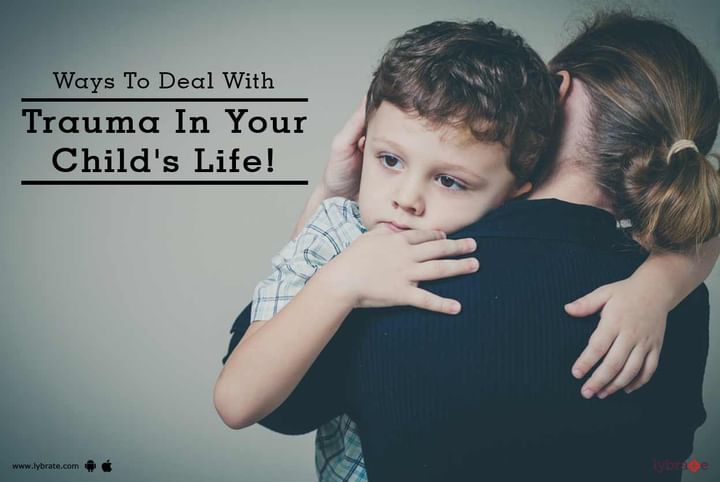Ways To Deal With Trauma In Your Child's Life!
From terrorism to natural disasters, there are a number of traumatic events constantly hurling themselves at us. Given the amount of stress it causes an adult, imagine how a child can process this information. Often traumatic events that occur in childhood can trigger phobias and anxiety disorders that last a lifetime if not dealt with correctly.
Each child responds to trauma in a different way depending on the circumstances and their age and personality. What is common is that all children turn towards their parents and teachers for support in these situations. Hence, it is important to understand how to help your child deal with traumatic events. Here are a few steps you should follow.
1. Provide comfort
The first thing to do in a traumatic event is to reassure and comfort the child. Reinforce your child's sense of security by following a normal schedule and maintaining regular eating and sleeping habits. Encourage your child to talk and ask questions and discuss the situation with them in a way appropriate to your child's age and concerns.
2. Accept their needs
Children show the need for reassurance in different ways. For some, it may be the need for extra physical contact in the form of hugs while for others it may be ensuring that their favourite teddy bear is with them constantly. Be patient with children and indulge their needs in such situations.
3. Limit the amount of information available
Media often magnifies a traumatic event making it all the more difficult for a child to apprehend. Children can often be mislead or frustrated by media coverage of a traumatic event. Thus, it is a good idea to limit the use of television, radios and internet. As far as possible do not let your child watch the news alone.
4. Stay in touch
If your child goes to school, his or her teacher is the parent figure at school. Stay connected with your child's teachers and the other adults in their life to monitor changes in behavioral patterns.
5. Create distractions
If left alone with nothing to do, a child's mind will dwell on the trauma. Encourage them to find a hobby to cope with the negative emotions. Music and art are two good outlets for stress. You could also play board games, read or play outdoors to distract them.
6. Get professional help
Sometimes you may need help to deal with a traumatic event in your child's life. If your child shows signs of behavioral changes, academic problems, emotional outbursts, anxiety, depression, insomnia or social withdrawal; you should consult a professional counselor



+1.svg)
